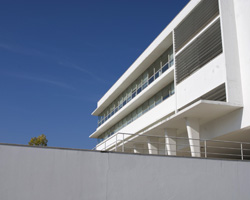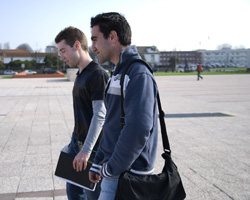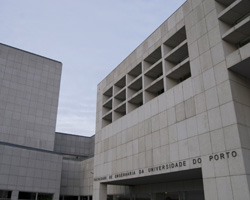MAP-fis is designed to provide the graduate student with a broad range of up-to-date research topics, made available by effectively joining the scientific capabilities of the three partner universities. In order to follow the natural evolution of these capabilities, the curricular structure of MAP-fis will be accessed and redefined by a Scientific Committee in every edition of the programme, thus ensuring an attractive and competitive programme, capable of following the scientific progress at an international level.
In order to provide the broadest possible scope of research topics, there will be no mandatory Physics modules. Instead, in the Advanced Topics in Physics I course, the student will choose at least 3 modules from within a wide range of options that will be updated and redefined each year. All students will also take a course in Entrepreneurship, which will provide them with a company-oriented/industrial approach to the knowledge developed at universities. All curricular units will take place during the first two Semesters of the doctoral programme.
A detailed description of the available courses for the 2012-2013 edition is available in section 2012-2013 Course Edition.
Every year the MAP fis team meets to decide which courses to cover within five major scientific areas, as shown in the table below.
1st Semester | Advanced Topics in Physics I | Options/modules: 1) Atomic and Molecular Physics: Spectroscopy and Photo-physics; Transport in Molecular Systems; Ultra-cold Quantum Gases; Ultra-cold Atoms and Quantum Computing; Advanced Computational Methods; Advanced Topics in Atomic and Molecular Physics 2) Condensed-matter Physics /Nanoscience: Material Spectroscopy; Physics of Disordered Systems; Nanomaterials and Nanostructures; Functional and Intelligent Materials; Condensed-matter Theory; Devices and Applications; Advanced Materials Production and Characterisation 3) Theoretical and Computational Physics: Gravitation and Cosmology; Many-Body Theory; Quantum Field Theory; Advanced Computational Methods; Complex Systems; Physics of Complex Networks; Biophysics; Phase Transitions 4) Meteorology and Oceanography: Climate change; Turbulence and Instability in Geophysical Fluids; Modelling of Geofluids; Waves in the Ocean and Atmosphere; Advanced Topics in Meteorology; Advanced Topics in Oceanography; Applications of Remote Detection Methods 5) Optics and Photonics: Nonlinear and Ultra fast Optics; Quantum Optics; Guided Optics; Optical Metrology; Lasers and Quantum Electronics; Advanced Computational Techniques |
Essay | Mainly devoted to individual guided study for preparation of a thesis proposal (topic, problem, state-of-the-art, research plan, calendar). | |
2nd Semester | Advanced Topics in Physics II | Participation in advanced School/Meeting |
Entrepreneurship | Knowledge and Technology transfer |






